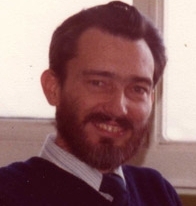István Kővári
From 1960, he received a scholarship from the Central Research Institute of Physics of the Hungarian Academy of Sciences (KFKI) and graduated from the Faculty of Electrical Engineering of the Budapest University of Technology (BME).
Between 1963 and 1984, he worked as a leading designer and developer at KFKI. He achieved his first results in the field of nuclear instrumentation. He was responsible for the production, final inspection and certification of instruments and equipment (x-ray meter, activity ratio meter) that could also be used in the field of medicine and served therapeutic purposes.
From 1968 he dealt with the development and application issues of small computers. In 1969 he participated in the development of the Dual-System, during which – for the first time in Hungary – two computers (ICT 1905 – TPA 1001) were connected via a fast channel. In 1970 he had to interface an American magnetic tape storage (Ampex TM4) to the TPA member of the aforementioned satellite system. From then on he was concerned with the development and application issues of mass storage devices using magnetic data carriers and their interface/control devices that could be used in small computer systems. The interface of these magnetic storage devices meant the development of rather complex and large-volume sequential hardware and the development of its control procedures, application-technical research and the solution of the issues raised by large systems.
Between 1979 and 1984, he continued to work as the head of the scientific department at the KFKI Measurement and Computing Research Institute (MSZKI) after the reorganization of the hardware development area.
He spent the second half of his professional life from 1984 to 1990 at the VIDEOTON Development Institute (VIFI) as a technical advisor to the director. His area of interest is magnetic tapes and disks. During the change of regime in 1990, the operating conditions of VIFI changed drastically; plans, goals, and tasks all went up in smoke. Since 1982, due to a latent kidney disease, he could no longer work on a daily basis; in 1991, he was granted disability pension.
Honors: KFKI Institute Award, 2nd degree (1975); Silver degree of the Order of Merit for Labor (1975); Lajos Jánossy Award (shared, Eötvös Loránd Physics Society, 1983); Excellent Worker (VIDEOTON, 1986); For Excellent Work (Minister of Industry, 1989).
- The loss of his job and his health took its toll, but he was soon back to doing research and summarizing work. This time, he put his observations about his illness and treatments into writing. He served the kidney community for the rest of his life.
- • From 1995, he started working in the office of the National Association of Kidney Patients' Associations (VORSZ). Also in 1995, he was elected secretary of the Margit Hospital Kidney Patients' Self-Help Association, and from 1998, he was elected vice president of VORSZ. In parallel, from 1999, he became a member of the board of the Association of Organizations of People with Impaired Health (Lánc Szövetsége).
Created: 2016.06.30. 22:20
Last modified: 2023.11.26. 14:59

